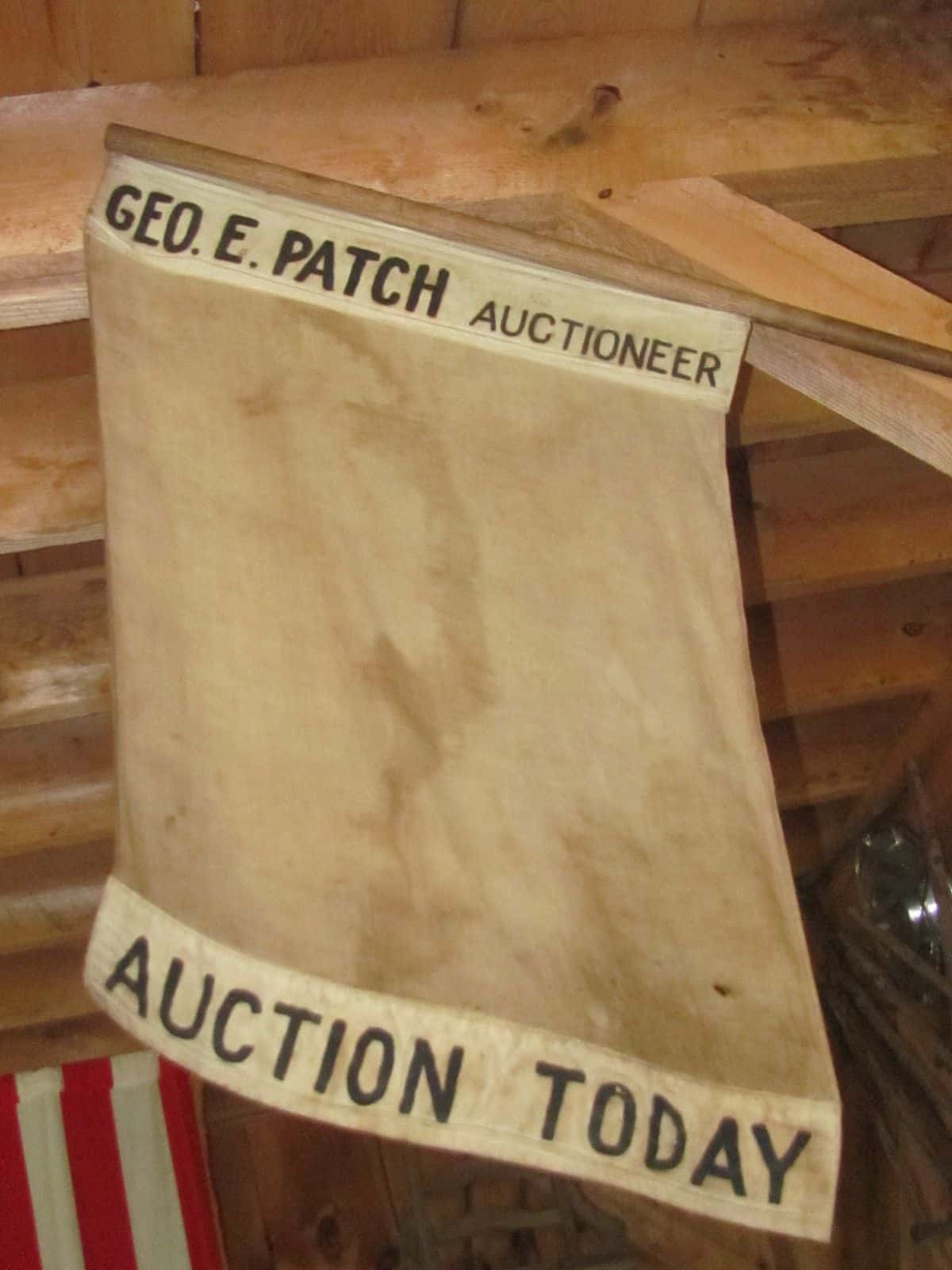
It was 1985. I was at an estate auction in Weathersfield, an old farmhouse out on a dirt road.
The auctioneer was Bill Smith of Plainfield, N.H. Bill was one of the top auctioneers in New England.
There were three tents set up, each maybe 30 feet by 40 feet. Under two tents were rows of antique furniture. The auction tent had chairs for the bidders’ comfort. Many people stood outside the auction tent, leaning in, waving their bidders’ number to bid. Excitement was in the air. Baldy was busy dragging the attic.
Smaller antiques were displayed on tops of furniture. Around the perimeter of the tents were tables loaded with early tin, spongeware, painted trenchers, and such.
It was shoulder to shoulder under the tents with people looking over the offerings. I was looking at items on one of the tables. There were always new auction-goers, who pestered us dealers as to what something was or why we paid so much.
We closely guarded our knowledge. We had learned the hard way and didn’t share what we knew. If we did, someone would use it against us. By that I mean they would bid against you in the future. No dealer in his right mind wanted more competition.
Well, I’m under a tent. A beginner was watching everything I handled, trying to strike up a conversation. I picked up a World War I German leather spike helmet. The beginner watched as I removed the spike.
Hold a spike helmet in your left hand. With your right hand, take hold of the spike and turn counter-clockwise. This will release the spike.
So, the beginner, now really curious, asked, “What’s that for?” referring to the spike. My reply, “It’s for night fighting. You remove the spike and put a candle in the socket.” “Wow! That’s so interesting!” he says. Sometimes it’s hard to keep a straight face.
There is a reason for the ease in removing the spike. German leather helmets were issued to both infantry and artillery units. So they could be used in either service, and easily distinguished, infantry had the spike. Artillery helmets don’t have a spike, but instead a ball. Either spike or ball is interchangeable on the helmet.
I have an old auction flag that reads: “GEO. E. PATCH AUCTIONEER, AUCTION TODAY.” I bought this flag at this Weathersfield auction. George Patch might have been from Ludlow. To me it doesn’t matter. The flag probably dates to the 1920s.
Papa Sol
Papa Sol lived up Rutland way. He was an older man, and a newcomer to the antiques business. Every Monday morning, Sol would stop at my shop in Springfield. He would tell about a Windsor chair or something he had seen over the weekend. He would describe it, and ask if he should buy it. I would say, “Yes, and if you get it I’d be a customer.”
This went on for a while when I realized what he was doing. I never saw anything we discussed. Sol was using me as a price guide. Using my sight unseen price of $250, he would offer it elsewhere, for maybe $350. I was being used.
One Monday morning, Sol came in and described something just about worthless. As before I told him to buy it – at an inflated price – and if he got it I’d be interested. The following Monday, in Sol came with the item. I passed. Ouch!
Having fun at auction
Some retail auction-goers used this flawed logic. They thought when they didn’t know the value of an item, all they had to do was outbid the dealer. Knowing the dealer was going to resell, all they had to do was increase his bid by one and they would beat the system.
When we realized this, and we did, we would bid well over what we could sell it for knowing Smarty Pants would outbid us.
In 50 years I have seen just about every swindle man can think of.
The Crazy Lady
Crazy Lady was neurotic, obsessive compulsive, inhibited by her intelligence. I once heard, “There’s a fine line between genius and insanity.” It’s true.
Crazy Lady worked for a house painter. She told about the horrific night she had. All night she had relentless dreams of nothing but hard work, without any breaks. “I awoke exhausted,” she said.
This week’s old saying: “If a deal is difficult in the beginning, walk away. It will only get worse with time.”